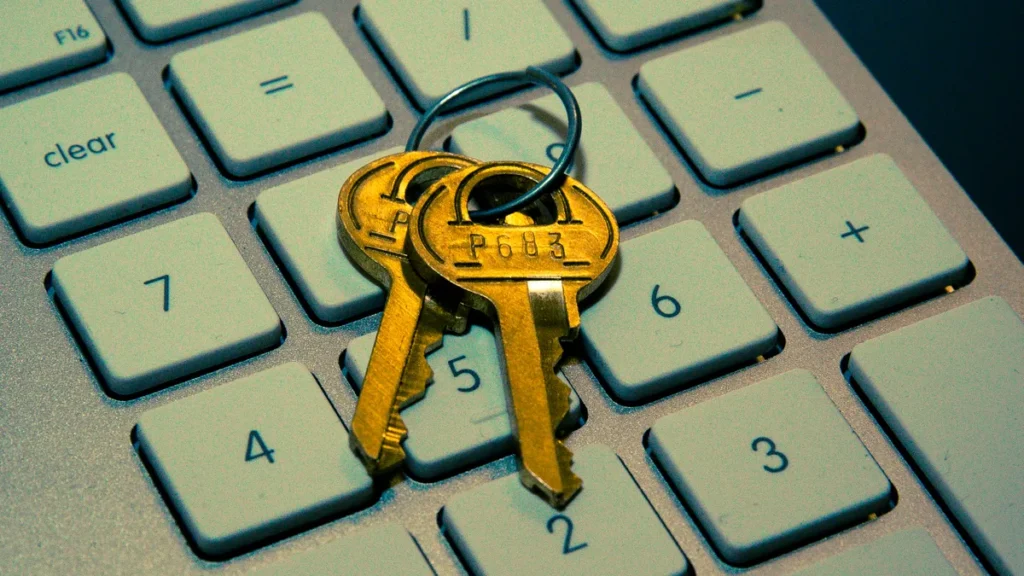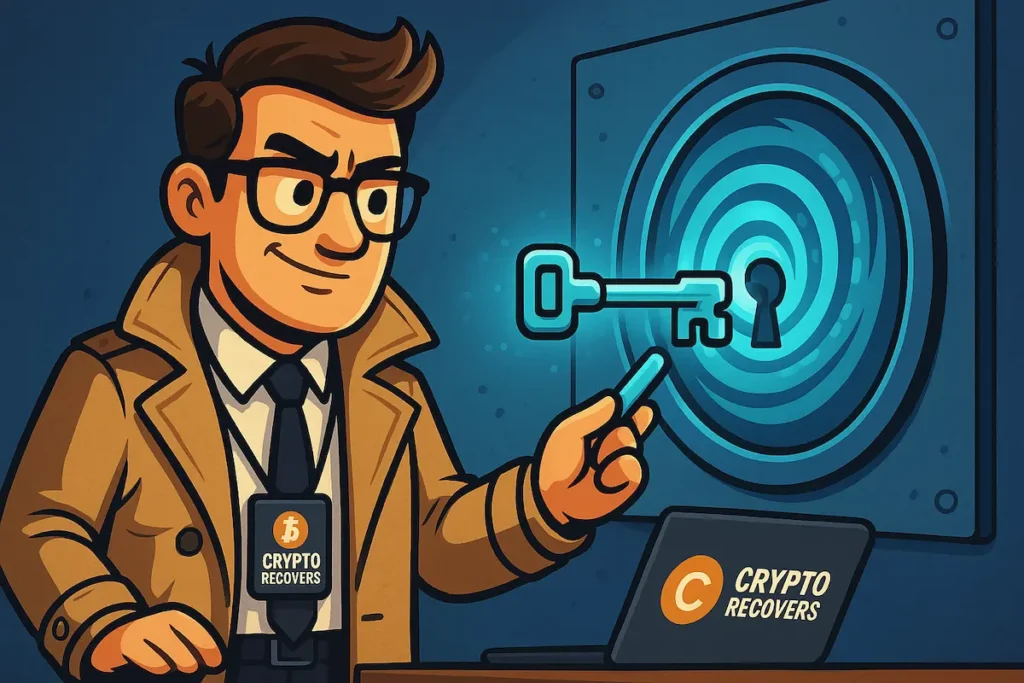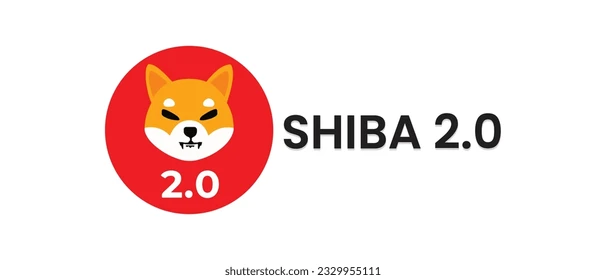Table of Contents
ToggleHow to Find Old Passwords
How to Find Old Passwords Free:
In the digital age, losing a password can feel like losing a key to your personal vault. Whether it’s an email account, social media profile, or more crucially, your cryptocurrency wallet, the frustration of a lost password can be overwhelming. This article will guide you through various methods to find old passwords and ensure you regain access to your important accounts. If you find yourself in need of specialized assistance, especially for recovering cryptocurrency, Crypto Recovery Solution offers professional services to help you recover lost crypto assets.
Step 1: Check Your Browser’s Saved Passwords
Most modern browsers like Chrome, Firefox, and Safari have a built-in feature to save passwords. Here’s how you can access them:
Google Chrome:
Open Chrome and click on the three dots at the top right corner.
Go to ‘Settings’ > ‘Passwords’.
You’ll find a list of saved passwords. Use the search bar to locate the specific account.
Firefox:
Open Firefox and click on the three lines at the top right corner.
Go to ‘Logins and Passwords’.
Search for the account in question.
Safari:
Open Safari and go to ‘Preferences’ > ‘Passwords’.
Enter your device password to view saved passwords.
Step 2: Use Password Managers
Password managers like LastPass, Dashlane, and 1Password store all your passwords securely. If you’ve used a password manager in the past, log in to your account and search for the missing password. These tools not only save passwords but also generate strong, unique ones for each account, reducing the risk of forgetting them in the future.
Step 3: Check Your Email for Password Recovery Options
Many online services offer password recovery options via email. Search your inbox for keywords like “password reset” or the name of the service you’re trying to access. Often, you’ll find emails containing links to reset your password.
Step 4: Utilize Operating System Keychains
Both Windows and Mac have built-in password management tools:
Windows Credential Manager:
Go to ‘Control Panel’ > ‘User Accounts’ > ‘Credential Manager’.
Here, you’ll find stored credentials for various services.
Mac Keychain Access:
Open ‘Finder’ and go to ‘Applications’ > ‘Utilities’ > ‘Keychain Access’.
Search for the specific account to find stored passwords.
Step 5: Seek Professional Help for Cryptocurrency Recovery
Recovering passwords for cryptocurrency wallets can be particularly challenging. If you’ve exhausted all the above methods without success, it might be time to seek professional help. Crypto Recovery Solution specializes in recovering lost or stolen cryptocurrency assets. They employ advanced techniques and tools to help you regain access to your crypto wallets securely and efficiently.
Preventive Measures for the Future
Use a Password Manager: As mentioned, password managers are invaluable for storing and generating secure passwords.
Enable Two-Factor Authentication (2FA): Adding an extra layer of security can prevent unauthorized access even if your password is compromised.
Regularly Update Passwords: Change your passwords periodically to enhance security.
Keep a Secure Backup: Store your passwords in a secure, offline location to avoid losing access in case of digital failures.
In conclusion, losing a password doesn’t have to be the end of the world. By following these steps, you can recover old passwords and secure your digital life. For those dealing with cryptocurrency password recovery, trust in the expertise of Crypto Recovery Solution to help you regain control of your valuable assets.

How to Recover Old Cryptocurrency Passwords Without Paying Fees
How to Recover Old Cryptocurrency Passwords Without Paying Fees
Introduction
How to Find Old Passwords Free: Forgotten cryptocurrency passwords are one of the most common reasons why people lose access to their digital assets. Whether it’s an old Bitcoin wallet, an outdated Ethereum account, or a long-abandoned exchange login, the challenge of recovering lost credentials can be overwhelming.
The good news is that with the right strategies and tools, it’s possible to find old passwords for free without paying upfront fees to unreliable services. This guide will explore practical methods, free tools, and trusted platforms to help you recover your old cryptocurrency passwords safely.
💡 Focus Keyword: Many users search “How to Find Old Passwords Free”, and this article is designed to give you step-by-step solutions without unnecessary costs.
Why Old Crypto Passwords Are Often Lost
People lose cryptocurrency passwords for many reasons, including:
Forgotten wallet or exchange logins.
Misplaced recovery phrases or private keys.
Outdated software wallets no longer supported.
Accidental deletion of wallet files (e.g., wallet.dat).
Poor password management habits.
Since cryptocurrency transactions are irreversible, password recovery is critical to regaining access.
Step-by-Step Guide: How to Find Old Passwords Cryptocurrency Free
| Step | Action | Free Tools / Resources |
|---|---|---|
| 1 | Search for saved credentials on your devices | Google Password Manager, Browser Autofill, iCloud Keychain |
| 2 | Check old email accounts for wallet registration & backup files | Gmail, Yahoo, Outlook |
| 3 | Look for wallet files (.dat, keystore, JSON) on old drives | Recuva, Photorec |
| 4 | Try password recovery tools for encrypted wallets | BTCRecover, John the Ripper |
| 5 | Use hints from old notes or documents | Search for “seed,” “mnemonic,” “wallet” in Notepad/Word |
| 6 | Check old hardware devices | USB drives, external hard drives, old smartphones |
| 7 | Verify potential passwords safely on a cloned wallet | Electrum, Bitcoin Core |
Free Tools to Recover Old Crypto Passwords
Here are some of the best free crypto recovery tools you can try:
BTCRecover – Open-source tool to recover lost wallet passwords (GitHub link).
John the Ripper – Password cracking tool that works with wallet.dat files (Official site).
Hashcat – GPU-accelerated recovery tool for password-protected wallets (Website).
Recuva – Free file recovery software to restore lost wallet backups (Download).
Electrum Wallet – Helps import old wallets and test recovered passwords (Electrum).
✅ Many of these tools are free, making them a reliable way to test “How to Find Old Passwords Free” before considering paid solutions.
When to Use Professional Recovery Services
If free tools don’t work, you may need professional help. The best services operate on a no upfront fee basis, meaning you only pay after successful recovery.
Trusted professional services include:
CryptoRecoverySolution.com – Experts in recovering stolen, lost, or forgotten crypto.
Coinfirm Reclaim Crypto – Specialized in scam-related crypto recovery.
MyChargeBack – Known for helping with chargebacks and wallet recovery.
Always verify credentials and avoid unverified “recovery agents” on social media.
Safety Precautions
While attempting recovery:
Work only with copies of your wallet files.
Never send private keys or recovery phrases to strangers.
Use a dedicated offline computer for recovery attempts.
Once recovered, transfer assets to a secure hardware wallet like Ledger or Trezor.
For Further Learning
These resources provide additional guidance for anyone facing crypto recovery challenges.
Conclusion
Recovering old cryptocurrency passwords can be difficult, but it’s far from impossible. By leveraging free recovery tools like BTCRecover, John the Ripper, and Hashcat, you can attempt to regain access without spending money upfront.
If free methods don’t work, turning to reputable no-upfront-fee recovery services can help safeguard your digital wealth.

How to Retrieve a Crypto Password?
How to Retrieve a Crypto Password?
Introduction
Losing access to a cryptocurrency wallet can be a nightmare. Whether you forgot your password, lost your backup files, or haven’t accessed your wallet in years, the thought of losing your digital assets can be stressful. Fortunately, there are proven methods to retrieve a crypto password and even tools that help with the process.
In this article, we’ll cover step-by-step strategies for recovering access, highlight free and paid solutions, and explain how the concept of “How to Find Old Passwords Free” is closely related to crypto password recovery.
Why Crypto Password Recovery Matters
Unlike traditional banking, there’s no “forgot password” button when it comes to decentralized wallets like Electrum, MetaMask, or Bitcoin Core. If you lose access to your password and recovery phrase, your funds are essentially locked.
The stakes are high because:
A forgotten password could mean losing thousands of dollars in assets.
Early adopters who mined Bitcoin years ago may now have wallets worth a fortune.
Many scams and fake “recovery services” prey on people in these situations.
How to Retrieve a Crypto Password – Step by Step
| Step | Action | Recommended Tools/Links |
|---|---|---|
| 1 | Identify your wallet type (hardware, software, exchange, paper wallet) | Bitcoin Wiki Wallets |
| 2 | Search for old wallet files (wallet.dat, keystore, JSON, seed phrase) | Local device backups, Recuva |
| 3 | Attempt to recover with the wallet’s native recovery options | Electrum, MetaMask reset |
| 4 | Use password recovery tools | BTCRecover, Hashcat |
| 5 | Explore “How to Find Old Passwords Free” methods | Built-in browser password manager, old backups, cloud sync |
| 6 | Contact a professional crypto recovery firm (no upfront fees preferred) | Coinfirm Reclaim Crypto, MyChargeBack |
The Role of “How to Find Old Passwords Free” in Crypto Recovery
The focus keyword “How to Find Old Passwords Free” plays a vital role here. Many users who forgot their crypto password can often trace it back through older digital storage:
Browser password managers (Google Chrome, Firefox, Safari, etc.) may have stored old login data.
Email accounts may contain wallet registration confirmations.
Cloud services (Dropbox, Google Drive, iCloud) may hold encrypted wallet backups.
Old devices (laptops, external hard drives) can store forgotten password files.
These free methods are often the first step before attempting advanced password recovery tools.
👉 If you’re interested, check out our detailed guide on Recovering Funds from Old Bitcoin Wallets to see how old files can help.
Tools for Crypto Password Recovery
Here are the most trusted open-source and commercial tools that can help:
BTCRecover – Free tool for recovering lost wallet passwords. (GitHub)
Hashcat – Advanced password cracking tool with GPU support. (Official Site)
John the Ripper – Open-source password recovery software. (Openwall)
Recuva – File recovery tool for lost wallet files. (Recuva Download)
When to Seek Professional Help
If free solutions and DIY attempts don’t work, it may be time to consult professional recovery experts. Look for services that:
Do not ask for upfront fees (payment should be success-based).
Have proven success with blockchain recovery.
Offer complete transparency throughout the process.
✅ Recommended services include:
CipherTrace – Blockchain analytics and recovery.
Coinfirm – Global recovery of stolen/lost assets.
Crypto Recovery Solution – Specialized in password & wallet recovery.
Security Tips During Recovery
Never share your private keys or seed phrase with anyone.
Always use a clean, malware-free computer for recovery attempts.
Backup your recovered password securely in multiple places.
Avoid unverified “recovery software” from random forums.
Conclusion
Losing a crypto password can feel like losing your entire investment, but with the right steps and tools, recovery is possible. Start with free methods under the umbrella of “How to Find Old Passwords Free”, then move on to specialized recovery software. If all else fails, turn to a trusted professional service that operates on a no-upfront-fee model.

I Forgot My Bitcoin Passcode and I Don’t Have 12 Words. What Do I Do?
I Forgot My Bitcoin Passcode and I Don’t Have 12 Words. What Do I Do?
Introduction
Forgetting your Bitcoin passcode or losing your 12-word recovery phrase (also called a seed phrase) can feel like the end of the road. These elements are essential for unlocking and accessing your Bitcoin wallet. Without them, regaining access to your digital assets becomes challenging—but not impossible.
This article explores what you can do if you’ve lost both your wallet passcode and recovery phrase, while also highlighting practical tools, professional recovery services, and free methods for finding old passwords.
Why Passcodes and Recovery Phrases Are Vital
Every Bitcoin wallet has two critical layers of security:
Passcode / Password: Protects your wallet application and prevents unauthorized logins.
12-word seed phrase: The master key that allows you to restore your wallet across devices.
Losing both makes recovery more complex. While there is no guaranteed solution, there are proven methods and tools that can help.
First Steps to Take
If you forgot your Bitcoin passcode and don’t have your 12 words, follow these steps before panicking:
Check all backups
Old notes, emails, printed papers, USB drives, or cloud accounts might contain your 12 words.
Sometimes people misplace backups in safe boxes, old phones, or documents.
Search for old wallet files
Bitcoin wallets (like Bitcoin Core, Electrum, or others) often generate a wallet.dat file or a recovery file.
Look for
.dator text files on your computer, old hard drives, or USBs.
Use free recovery tools
Tools like BTCRecover and Hashcat can help in attempting password recovery.
This relates directly to How to Find Old Passwords Free, since these open-source tools can attempt to crack forgotten passcodes without upfront fees.
Test different password variations
Try old email passwords, common phrases, or variations of your usual logins.
Use a structured password guessing tool to avoid endless manual attempts.
Tools for Password Recovery
| Tool | Purpose | Link |
|---|---|---|
| BTCRecover | Open-source Bitcoin wallet password recovery | GitHub |
| Hashcat | GPU-powered password cracking for wallet.dat files | Hashcat Official |
| John the Ripper | Multi-platform password recovery tool | John the Ripper |
| Recuva | File recovery software (useful if wallet files are deleted) | Recuva |
When Free Tools Are Not Enough
If your case involves large amounts of Bitcoin or the wallet file is severely corrupted, it may be time to consider professional recovery services.
Trusted services that operate on a no upfront fee model include:
For internal knowledge-building, we’ve also written guides you can explore:
What You Should Avoid
Never share your private keys or wallet.dat file with strangers. Scammers often pose as recovery experts.
Avoid guaranteed recovery promises. No one can ensure 100% success without access to your wallet keys.
Do not pay upfront to unverified companies. Trust only transparent services with proven track records.
Future Prevention Tips
Back up your 12-word phrase in multiple locations.
Store passcodes in encrypted password managers like Bitwarden or 1Password.
Update your recovery plan every time you move your funds or create new wallets.
Conclusion
Forgetting your Bitcoin passcode and losing your 12 words can feel like a devastating blow. However, with persistence, tools like BTCRecover, and the strategies outlined above, recovery is possible in many cases.
Remember, there are free solutions available if you’re wondering How to Find Old Passwords Free, and when those fail, professional no-upfront-fee recovery firms can step in.
Your lost Bitcoin might not be gone forever—it could just be waiting for you to take the right recovery steps.






